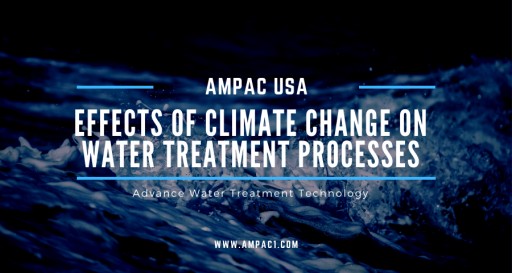
CALIFORNIA CITY, Calif. - April 25, 2020 - (Newswire.com)
Water treatment processes such as reverse osmosis or seawater desalination have made the lives of the general population easier. Many people are unaware of the fact that these technologies face challenges due to climate change and global warming as well.
The most vital challenge is inundated water supplies. As sea levels are rising, facilities like reverse osmosis plants that are located near the sea, lakes or other large water bodies, are at the risk of getting the infrastructure inundated. The seawater levels are rising primarily due to snow melting that occurs due to rising global temperatures. Several coastal cities will likely experience up to a 10-inch increase in the water levels. This problem can be faced by changing the location of the water treatment facilities and investing in portable reverse osmosis or seawater desalination solutions.
Droughts are another challenge that has risen rapidly in the last few years, especially in the US. Even flourishing cities like California have faced severe drought crisis in the last few years (2011-2019). Few solutions to this challenge could be the adoption of seawater desalination technology or the adoption of emergency reverse osmosis systems that can ensure the availability of water in drought-hit areas.
Floods are also a challenge that has risen recently as a part of climate change. They make water treatment tough by triggering issues like sewer overflows, which raise the levels of water contamination and make water non-consumable by people. Adopting other newer means of water treatment such as forward osmosis could be a solution to this issue.
As the temperatures across the globe are rising as a result of global warming and climate change, the temperature of water bodies such as the sea, lakes, streams, etc. are also rising. The rise in temperature (9 out of 10 warmest years on record have occurred since 2005) is triggering biological reactions such as oxygen release which further trigger corrosion of pipes and damage the infrastructure created for water treatment. This damage can be prevented by doing preventive and reactive maintenance of water treatment systems.
In some cases, biological reactions also lead to a rise in the levels of evaporation and higher than usual water temperatures. As a result, the water incoming into a reverse osmosis treatment plant becomes denser and is filled with higher amounts of sediments.
To resolve these challenges, steps must be taken by manufacturers of systems like reverse osmosis, the government and the authorities responsible for water treatment to ensure that the right infrastructure is developed and enhanced with time.
Related Links
Emergency Portable Water Reverse Osmosis System
Land Based Water Maker
Press Release Service by Newswire.com
Original Source: AMPAC USA Shares Here the Effects of Climate Change on Water Treatment Processes
